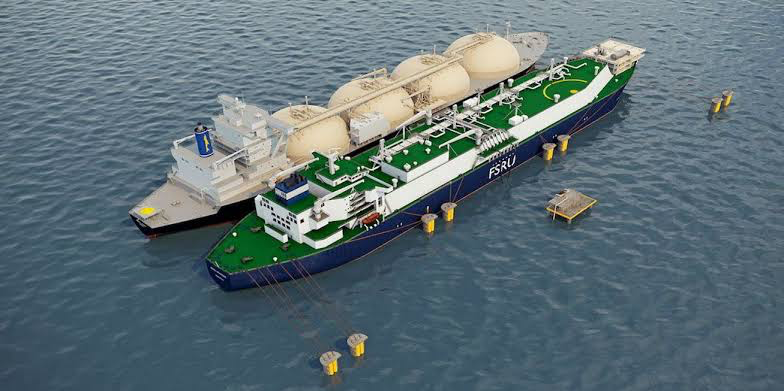BP and its partners are facing increased scrutiny from the governments of Mauritania and Senegal over their flagship liquefied natural gas (LNG) project in West Africa. The Greater Tortue Ahmeyim (GTA) LNG project, which straddles the maritime border of the two countries, has been delayed by 28 months and is expected to start production in the third quarter of 2023, instead of the second quarter of 2022 as originally planned.
The GTA project is one of the largest and most ambitious LNG developments in Africa, with an estimated 15 trillion cubic feet of gas resources and the potential to produce up to 10 million tonnes of LNG per year. The project involves the construction of a floating production, storage, and offloading (FPSO) vessel, a floating LNG (FLNG) facility, and a network of subsea pipelines and wells.
The project is also seen as a catalyst for economic and social development in Mauritania and Senegal, which are both among the poorest countries in the world. The project is expected to generate billions of dollars in revenues for the two governments, as well as create thousands of jobs and provide access to clean energy for domestic consumption.
However, the project has faced several challenges and setbacks since its inception, including technical issues, contractual disputes, environmental concerns, and the impact of the COVID-19 pandemic. The project’s budget has also increased from $17 billion to $20 billion, according to media reports.
In a joint statement issued on January 19, the oil ministries of Mauritania and Senegal said they had held working meetings in Dakar to assess “the overall impact of the delay recorded in the execution of the project and the increases in announced costs”. The statement said the two governments had agreed to carry out an audit of the project’s costs and to remain vigilant in the operational, economic, and financial support of the project, in partnership with BP and Kosmos Energy.
The statement also reaffirmed the commitment of the two countries to the project and their determination to guarantee the rights of the contractors and the interests of their nations. The statement said the GTA project had been granted the status of “National Project of Strategic Importance” by the presidents of Mauritania and Senegal in July 2021, demonstrating their recognition of the significance of the project for both countries.
BP and Kosmos Energy have not commented on the statement or the audit, but have previously expressed their confidence in the project and its benefits for the region. In a press release on January 23, BP announced that the FPSO vessel for the GTA project had successfully set sail from China to its final destination offshore Mauritania and Senegal, after completing a series of sea trials. The FPSO vessel will process natural gas from the offshore fields and export it to the FLNG facility, which will liquefy it for export to international markets.
BP’s executive vice president of production and operations, Gordon Birrell, said: “This is a fantastic milestone for this important project, which is a great example of BP’s resilient hydrocarbon strategy in action. We aim to build on our strong collaboration with our partners, and the governments of Mauritania and Senegal, to further develop a long-term, successful energy hub in West Africa.”
The GTA project is part of a wider exploration and development program in the MSGBC basin, which covers Mauritania, Senegal, Gambia, Guinea-Bissau, and Guinea-Conakry. The basin has emerged as a new frontier for oil and gas exploration in Africa, attracting interest from several international companies. According to the US Energy Information Administration, the basin could hold up to 50 billion barrels of oil equivalent of undiscovered technically recoverable resources.
The GTA project is also seen as a model for cross-border cooperation and integration in Africa, as it involves the harmonization of legal, fiscal, regulatory, and environmental frameworks between Mauritania and Senegal. The project has been supported by several international institutions, such as the World Bank, the African Development Bank, and the International Finance Corporation, which have provided financing and technical assistance.
Despite the challenges and delays, the GTA project remains a source of hope and opportunity for the people of Mauritania and Senegal, who are eager to see the benefits of their natural resources. The project also has the potential to contribute to the global energy transition, as LNG is a cleaner and more flexible fuel than coal and oil. As the world moves towards a low-carbon future, the GTA project could position Mauritania and Senegal as key players in the global LNG market.
Source: Energy Voice



